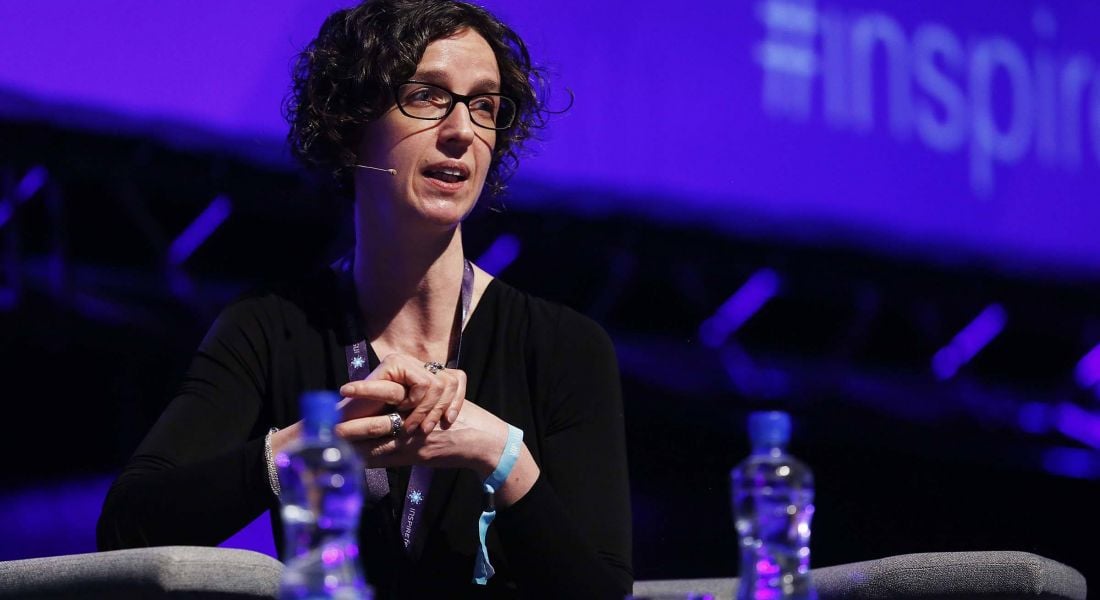“We ran a coding competition last year and 30pc of the participants were girls. Only one girl out of 1,500 participants made it to the coding section. Were they able for it? Yes, they were. Did they have the confidence? No.”
Speaking at the InspireFest 2015 panel on A Workplace & Workforce for the 21st Century, Fionnuala Meehan, director of SMB sales EMEA for Google, addressed the various issues the technology company found that contribute to the dearth of women pursuing a career in technology.
Referring to a 2014 Google whitepaper entitled Women Who Choose Computer Science – What Really Matters , Meehan spoke about the critical need for social encouragement and the importance of self-perception in encouraging girls to pursue careers in STEM.
“We have a few key pillars, including hiring for diversity, which is where it starts. Your pipeline of candidates has to be balanced, so we spend a lot of time trying to measure and improve upon this,” she explained.
To this end, Google has to date carried out unconscious bias training for half of its employees worldwide.
Prof Mark Ferguson, director general of Science Foundation Ireland, added that choosing a career in STEM is largely dependent on how school children feel about fitting in: “Research indicates that the dominant feature in choosing a career is not ability but whether children think they will fit in; only second to this is whether their parents think they will fit in.”
Ferguson underlined the importance of unconscious bias training and stated that, going forward, Science Foundation Ireland will require all individuals to undergo this training prior to undertaking peer review on their behalf.
For those women who are already in STEM careers, childcare and maternity leave are other issues that need to be addressed, added Ferguson: “In terms of maternity leave, the biggest challenge is giving people the confidence to re-enter their field, especially when research has moved on.”
SFI is addressing childcare by allowing childcare costs as an eligible line item on costs for funding applications for women, but not men, adds Ferguson, explaining that this is an initiative to address an existing imbalance.
Flexibility in the workplace is also key to addressing gender imbalance says Dell’s Diversity Chief & VP of Talent, Marie Moynihan: “The old view of flexible working was that you were doing someone a favour by allowing them to work from home.
“In 2009, when Dell was eliminating facilities costs we figured out that the connected workplace was the way to do this and it changed the dialogue. People opted to give up their office and work from home, coming in when they needed to.”
Now 20pc of Dell’s 100,000-strong global workforce work fully from home with a goal for 2020 of 50pc.
Speaking about the importance of diversity as well as flexibility in encouraging more women to pursue STEM careers, Moynihan said: “The best outcomes arise from mixed gender teams. Diversity is not the right thing to do, it’s the smart thing to do.”
Updated at 1.53pm on 30 June to include video of Inspirefest 2015’s Workplace & Workforce panel.
Article by Marie Boran




